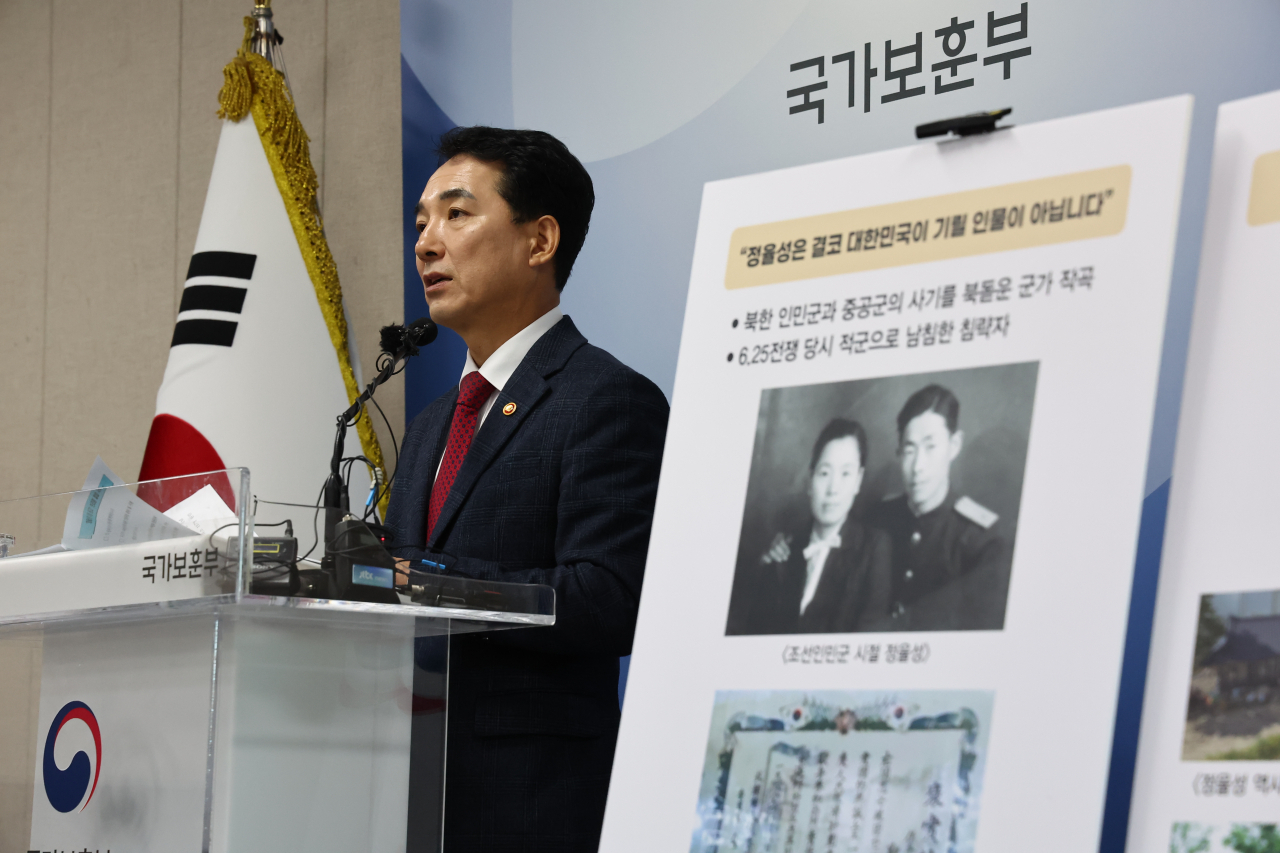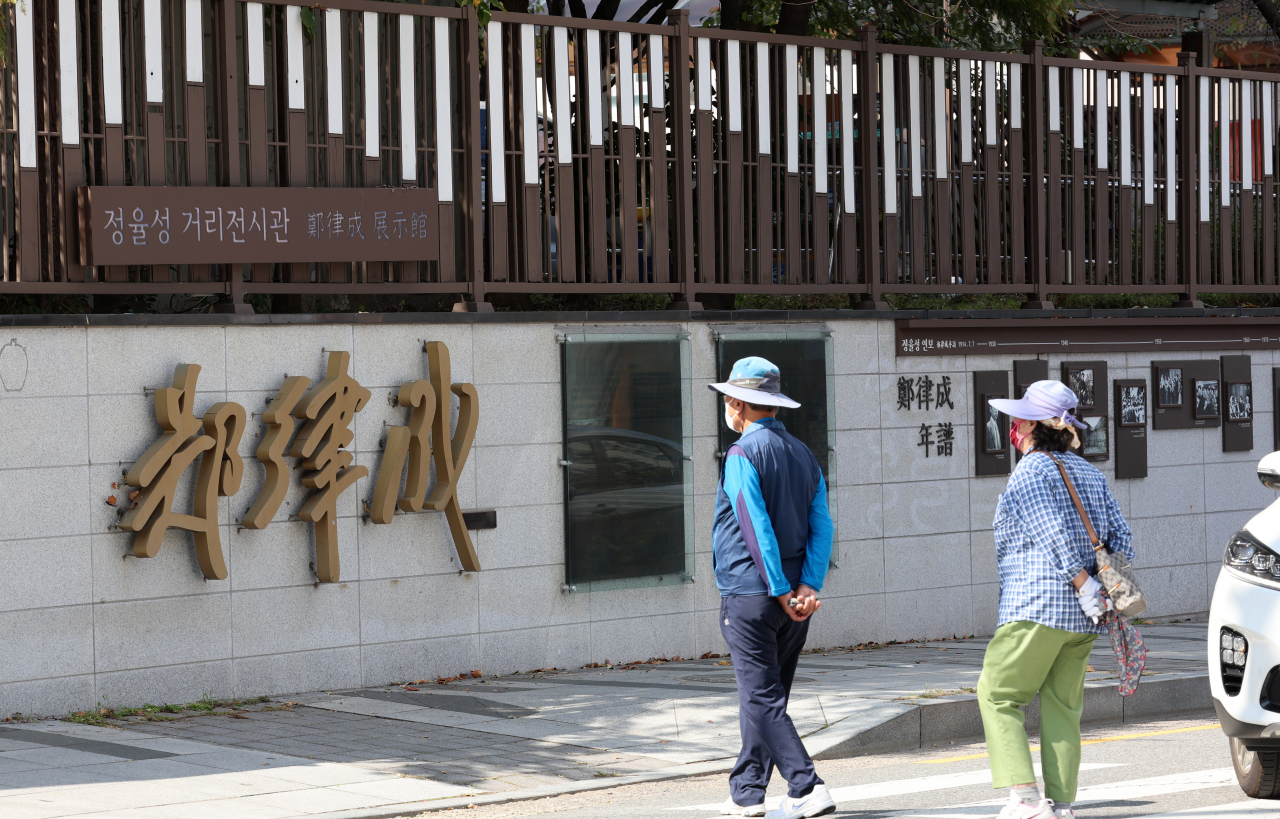Patriots Ministry vows to intervene in Gwangju's plan to honor China's military anthem composer
By Son Ji-hyoungPublished : Oct. 11, 2023 - 14:46

Minister of Patriots Park Min-shik asked the Gwangju city government Wednesday to suspend its plan to build a park in memory of a Korean Chinese composer who fought against the South during the Korean War.
Park said the ministry would issue a correction order to stop Gwangju authorities commemorating Zheng Lucheng if the city government fails to abide by its recommendation.
Zheng, more commonly known as Jeong Yul-seong in South Korea, not only composed the anthem of the Chinese People's Liberation Army that fought against Seoul during the Korean War in 1950-53, but also participated in the North's invasion of South Korea that claimed 1.76 million South Korean lives, including 770,000 soldiers, according to the ministry.
"A North Korean ambush gave rise to the Korean War, leaving incurable wounds on the minds of South Korean citizens. The military anthem that Zheng wrote elevated enemy troops' morale, and Zheng brought himself to Seoul alongside troops of North Korea and China," Park said in a press conference at the Seoul Veteran Affairs Regional Office.
"Commemorating Zheng is an act of denying the national identity of South Korea, and of undermining the honor of war veterans who sacrificed their lives to protect their country, as well as their bereaved families."

Thursday's announcement marks the first time for the Ministry of Patriots and Veterans Affairs, elevated to a ministry in June, to intervene in the affairs of the local government.
Gwangju's municipal authorities have spent 4.8 billion won ($3.58 million) in the past five years to build a memorial park for Zheng on a 878-square-meter plot of land by the end of this year. Gwangju is also working to preserve Zheng's birthplace and create a historic site in its southern area, in a project worth 390 million won.
Gwangju has already set up statues of Zheng and named a road after him.
Park additionally denied claims that Zheng was a recognized independence fighter during Japan's 1910-45 colonial rule, contrary to claims by the Zheng Lucheng Memorial Association that his family fought for independence.

Zheng was once a historic figure symbolizing the friendly ties between South Korea and China. Since the mid-2000s, academic seminars and music festivals commemorating Zheng have taken place in Gwangju.
Zheng's past activities suddenly came under new light in August, after Patriots Minister Park posted on his social media saying "no taxpayer's money should be spent to commemorate an enemy who pointed his firearm at South Koreans."
Zheng was born in Gwangju in 1914 and migrated to China in 1933. Having composed numerous military anthems since joining the Chinese Communist Party in 1939, Zheng took part in the military forces that advanced to Seoul during the Korean War. Zheng died in 1976, 10 years after he was deprived of his right to create art in the wake of China's Cultural Revolution.












![[Kim So-hyun] The quiet taxi driver from Paris](http://res.heraldm.com/phpwas/restmb_idxmake.php?idx=644&simg=/content/image/2024/04/25/20240425050891_0.jpg&u=)







